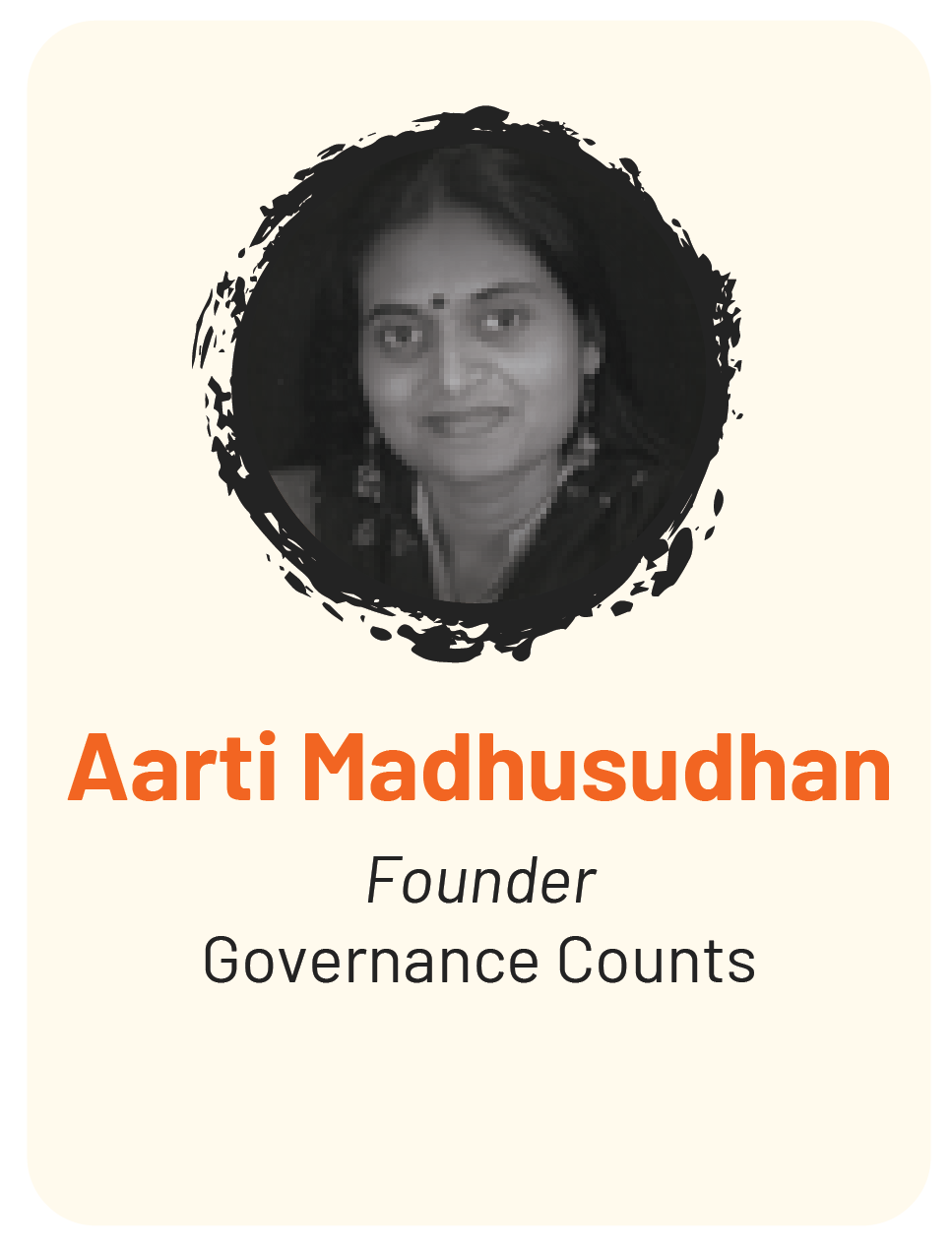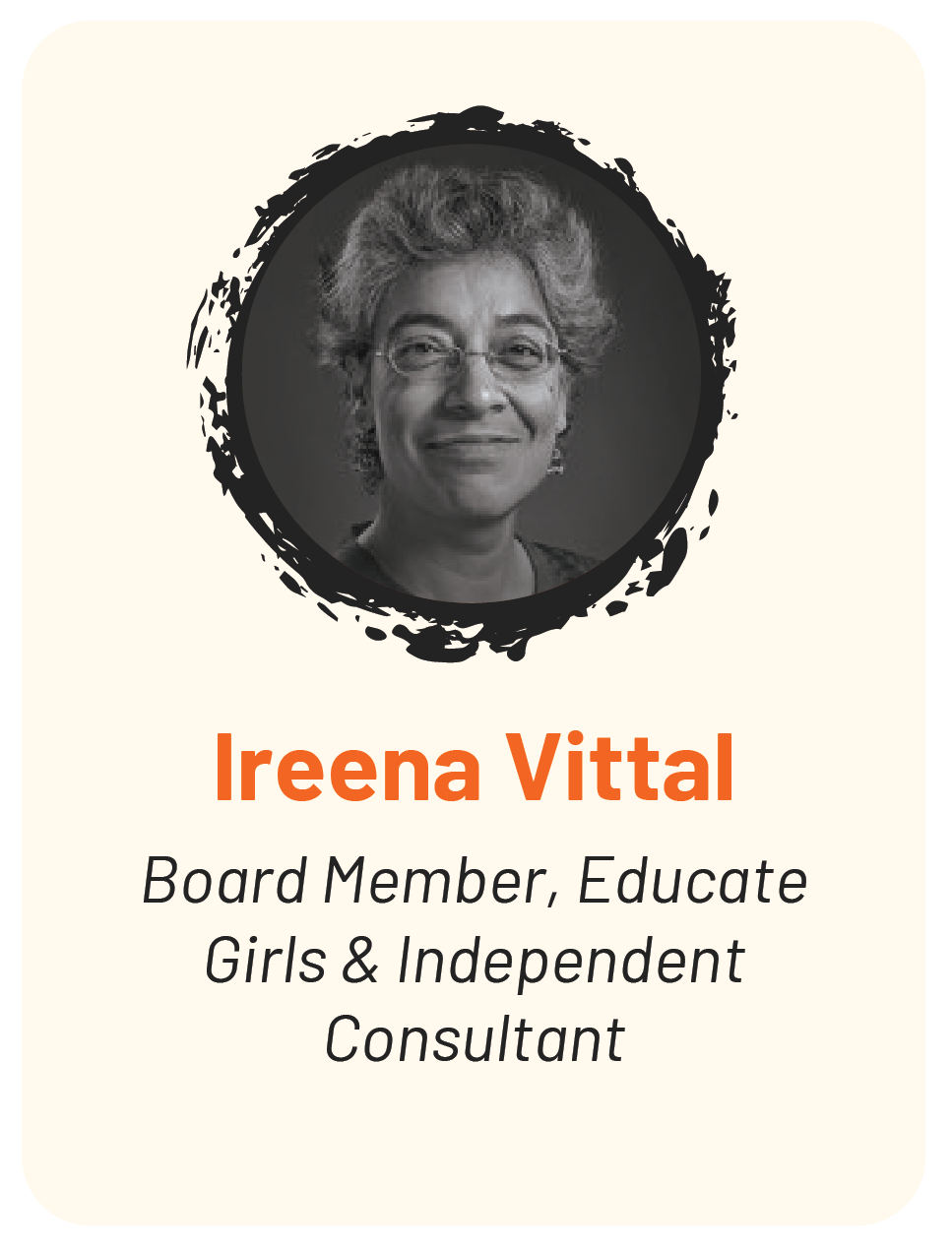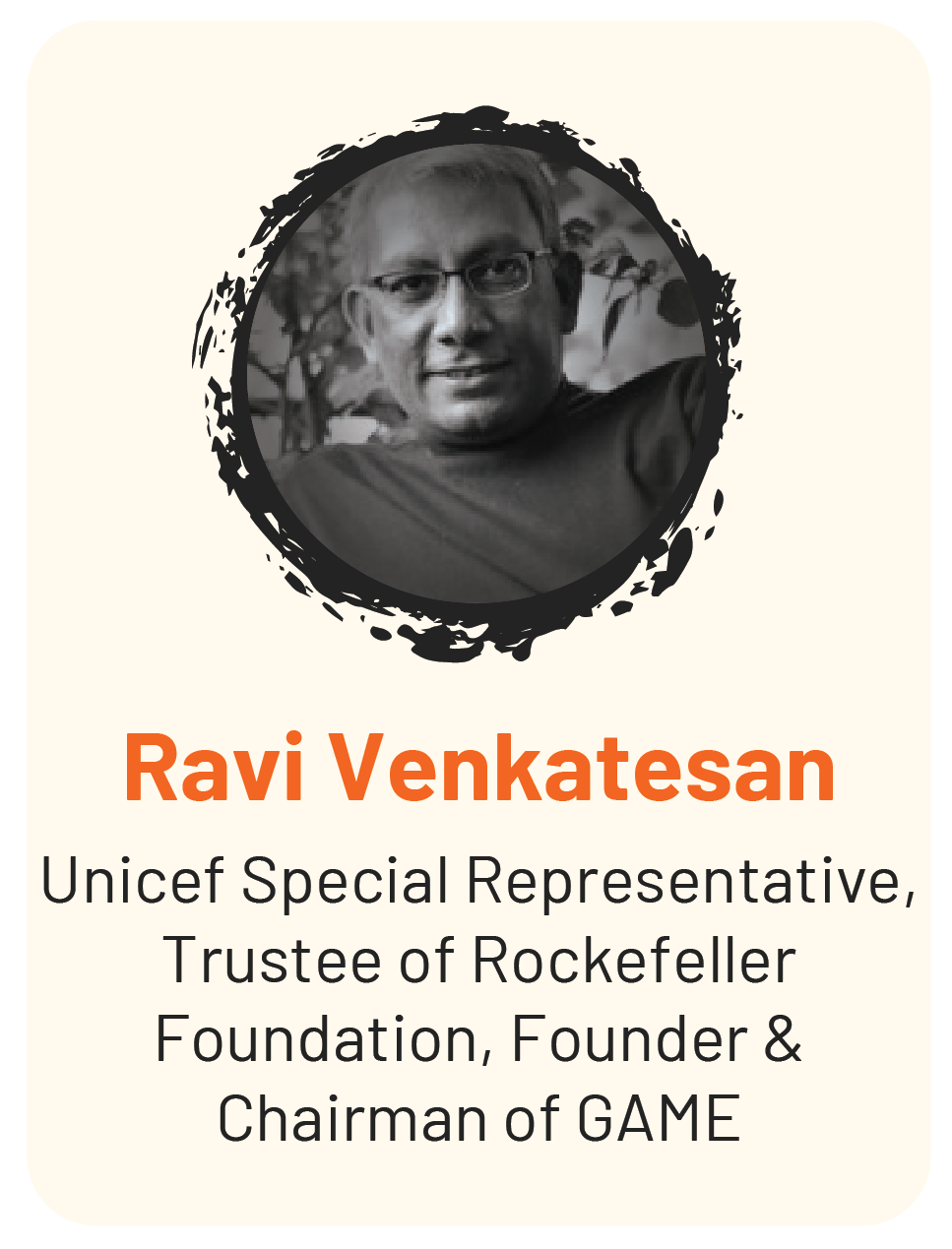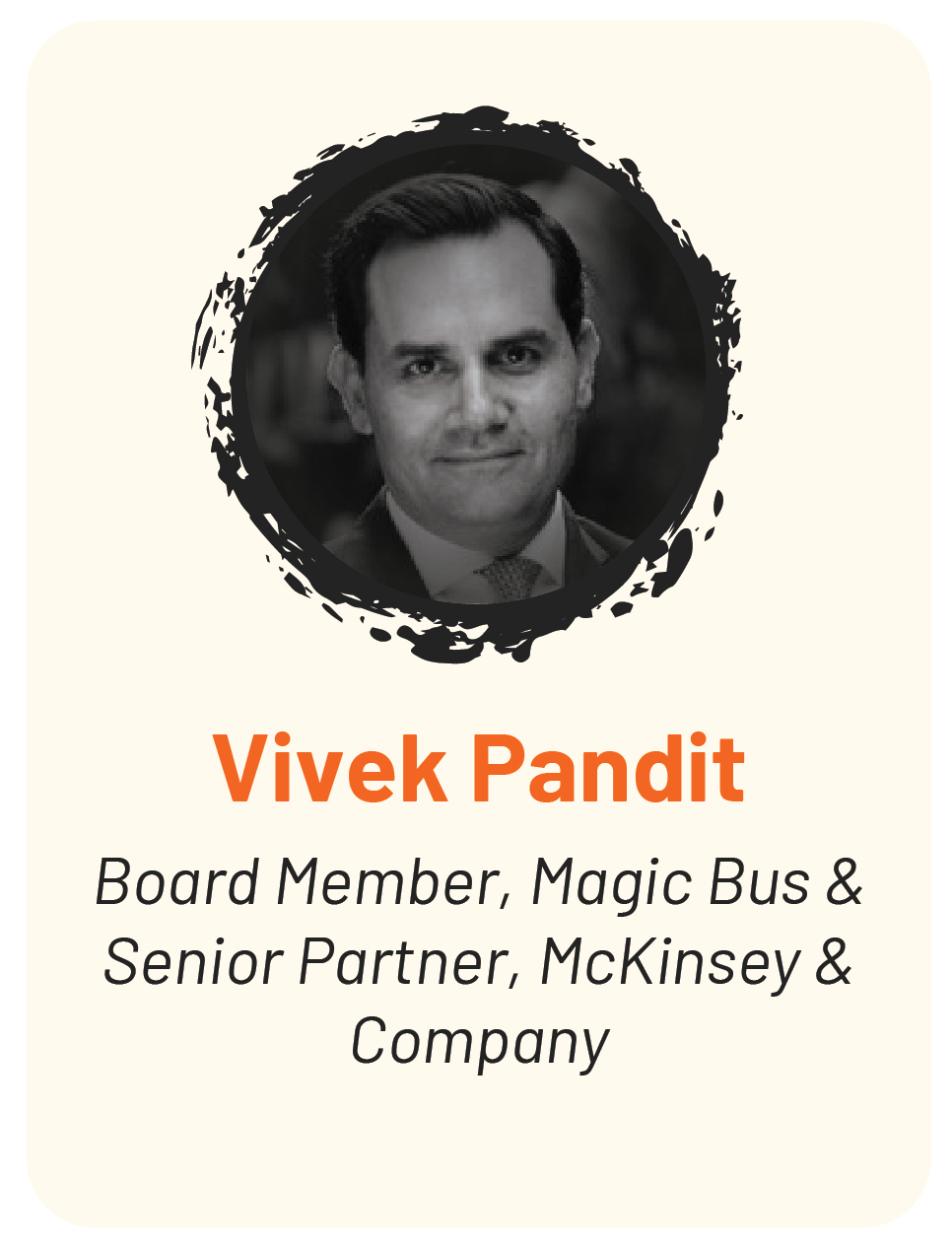problem boards or
|
|
Boards of non-profits play a critical role in not just driving the efficiency and mandate of the organization, but also have a direct impact on the work the non-profits are able to do for the most underserved communities in India and the Covid-19 pandemic has highlighted this.
Tune in as we hear from governance consultants and experienced board members, who lead some of India’s key non profits today – as they share their experiences and best practices on running effective boards! |
Key takeaways
- An effective board focuses on impact and sustainability, by spending sufficient time and regular cadence on key themes like measurement, risk and resource constraints. Separate taskforces need to focus on these key thematic and sector focus areas.
- CEOs and Founders need to know why they want a board and hence when to get a board, which should be at the growth stage of the organization. Boards are there to help them with their cause and not to provide cause.
- A board needs to be able to provide strategic support on scaling, networking, survival and de-biasing the organization from the founders. Board members need to be able to engage externally on the organization(s) they represent. This would require members who have chemistry and muted egos.
- Boards cannot be judges and decision-makers for the organization.
- A good Chairperson needs passion and needs to be able to give time, membership, direction and manage expectations, based on the nature of the organization and the market it is serving. They should be able to lead the Board towards developing effective operational frameworks.
- To be a purpose driven board and board member, the primary principal is ‘give, get or get off’. Board members need to be aware of what capabilities they can truly offer and align this with the CEO/founder’s expectations.
- It’s important to think about the size of the board and how accountability flows – boards need to stay accountable to their own responsibilities and decisions, the end beneficiary of the impact the organization creates and to the CEO/founders’ expectations.
- While creating an effective board, members and CEOs/founders need to be mindful of retiring members who have outlived their competencies and contributions to the board.
- A clear distinction needs to be drawn between effective board members and effective boards – regular appraisals, internal discussions and having standard terms/tenures (extendable by mutual agreement) will drive effectiveness. Board members should also be able to sit down and develop a roadmap for their own tasks. However, member rotations for the sake of rotations are not the way.
- There also needs to be a conversation from the perspective of the board members, identifying their motivations and capabilities and creating the necessary value proposition for them to contribute effectively to the board and the organization.
- Board members need to ask themselves whether they really want to be on a board and not be on too many at a time.
- Effectiveness of a board can be driven by feedback loops with implementing partners, customers, staff and other stakeholders.
session highlights
Nonprofit boards can play a transformational role; however, currently, most have been set up as “peace time boards”, not prepared for the turbulent and disruptive times we have recently witnessed. Moreover, there is often a mismatch in expectations between board members and NGO Founder/ Leaders, leading to a low level of satisfaction, both from the non- profit and the board member as well as the presence of several incumbent board members.
The discussants in this Learning Lab on Leading Effective Non-Profit Boards in India delved into their own experience as successful nonprofit board members as well as expertise on nonprofit governance to share effective strategies to ensure maximum output from the engagement. Key insights included setting up a board at the right time in an organization’s growth, active shaping and evolving of that board through deliberate inducting and retiring board members, putting in place an effective chair, creating relevant task forces and ensuring key accountability mechanisms.
The discussants in this Learning Lab on Leading Effective Non-Profit Boards in India delved into their own experience as successful nonprofit board members as well as expertise on nonprofit governance to share effective strategies to ensure maximum output from the engagement. Key insights included setting up a board at the right time in an organization’s growth, active shaping and evolving of that board through deliberate inducting and retiring board members, putting in place an effective chair, creating relevant task forces and ensuring key accountability mechanisms.
quotes
|
|
Effective chairs get the organization and the board really focused on what matters. An exactly similar paradigm shift or revolution is needed in the not-for-profit world as well.
- Ravi Venkatesan, Unicef Special Representative, Trustee of Rockefeller Foundation, Founder and Chairman of GAME |
|
|
The board is there to serve your cause, not you, but your cause, and therefore it should reflect skills that are complementary to you. To me these are usually, three sets of skills you’re looking for when you’re putting a board together: de-risk- ensure survival, help scale up and get access.
- Ireena Vittal, Board Member, Educate Girls & Independent Consultant |
|
|
The one thing I would say for board members, is to introspect and say is this a board you really want to be part of, and if you choose to be part of it, then give it your best.
- Ravi Venkatesan, Unicef Special Representative, Trustee of Rockefeller Foundation, Founder and Chairman of GAME |
|
|
The board has got to be clear about what the value drivers are, which geographies are you in, what style of operation are you going to have, what you intend to do yourself and what do you intend to use other organizations for. The focus should be around the distinctive competence that you need to apply to deliver what it is you have set out to do.
- Peter Smitham, Co- Founder, Kiawah Trust & Ex-Chairman of Atlantic Philanthropies |
|
|
Board members have to ask themselves what exactly they can do that is distinctive and truly value adding to the board and the expectations should be set early.
- Vivek Pandit, Board Member, Magic Bus & Senior Partner, McKinsey & Company |
|
|
Who you’re accountable to as a board: The customer, the user, the beneficiary absolutely is the focus when you’re judging impact. The impact of the board is on whether you have made a difference on the lives of the vulnerable and disadvantaged.
- Peter Smitham, Co- Founder, Kiawah Trust & Ex-Chairman of Atlantic Philanthropies |
|
|
I think in India, for better or for worse, Internal engagement is important, because it gives the CEO of the institution support, but I would say, external engagement is maybe twice as
important and the reason for this is that your reputation and access will matter. - Vivek Pandit, Board Member, Magic Bus & Senior Partner, McKinsey & Company |
|
|
It’s very important for the board to reflect on its own performance every year, sit around the table and say: How did we do? What were the gaps? What did we really do well? And celebrating what got done well.
- Aarti Madhusudhan, Founder, Governance counts |
Share this session's highlights with your network!





